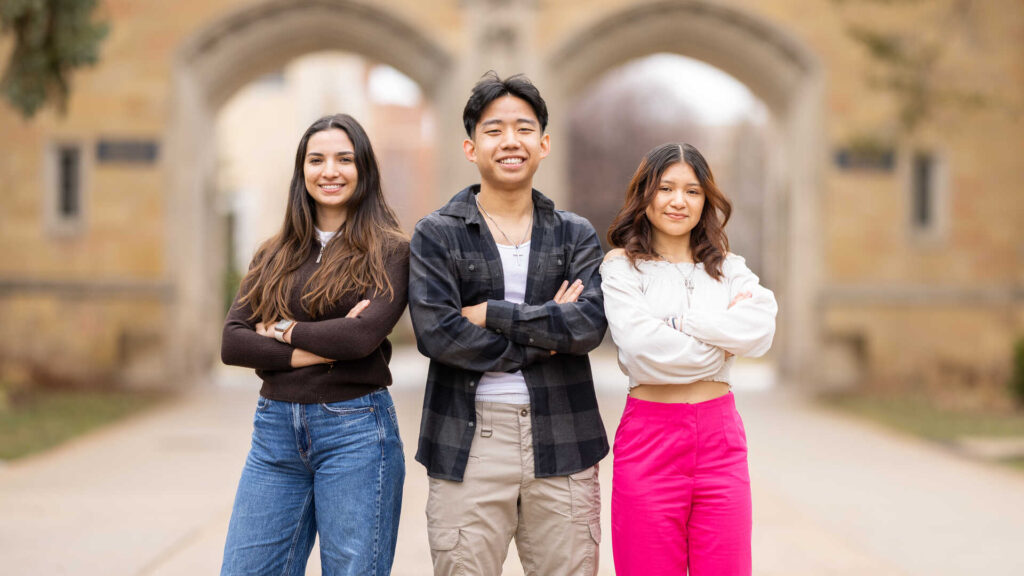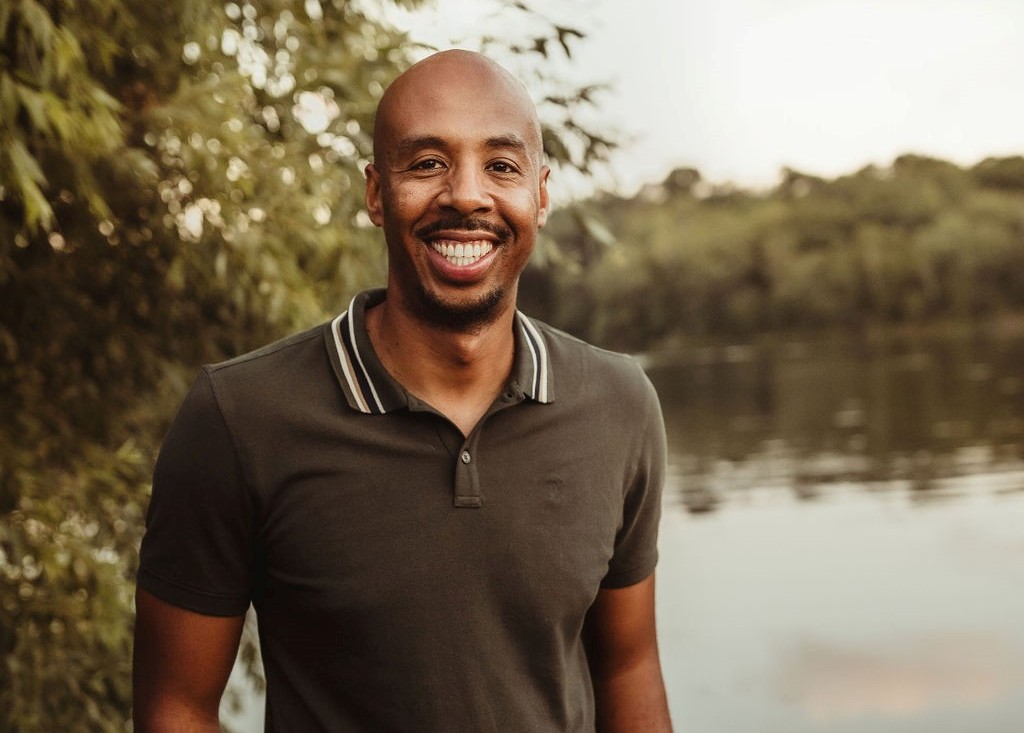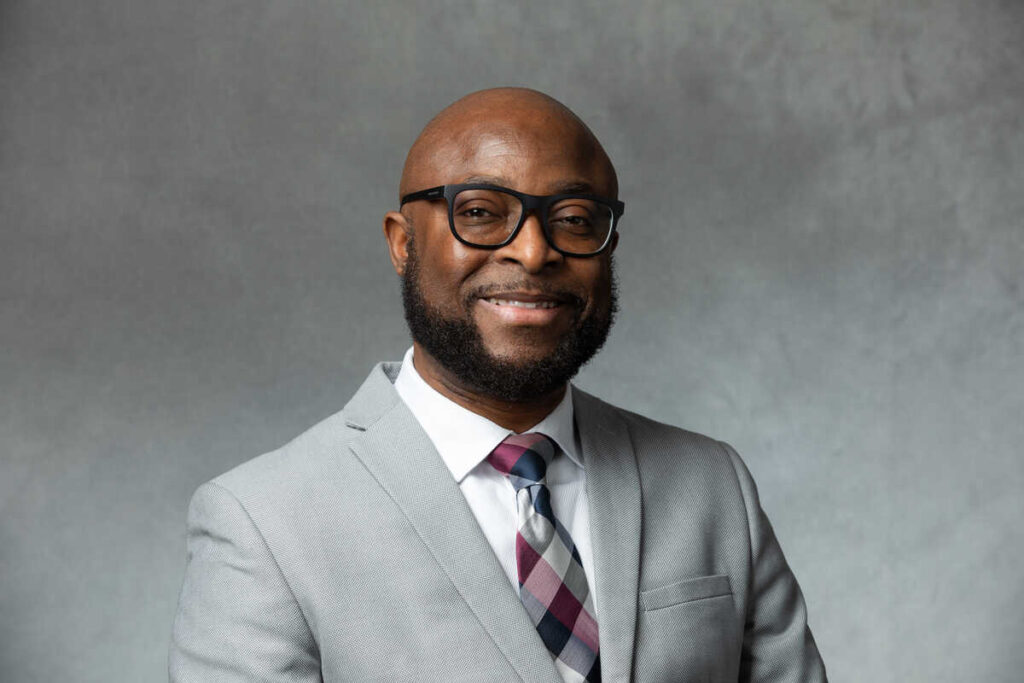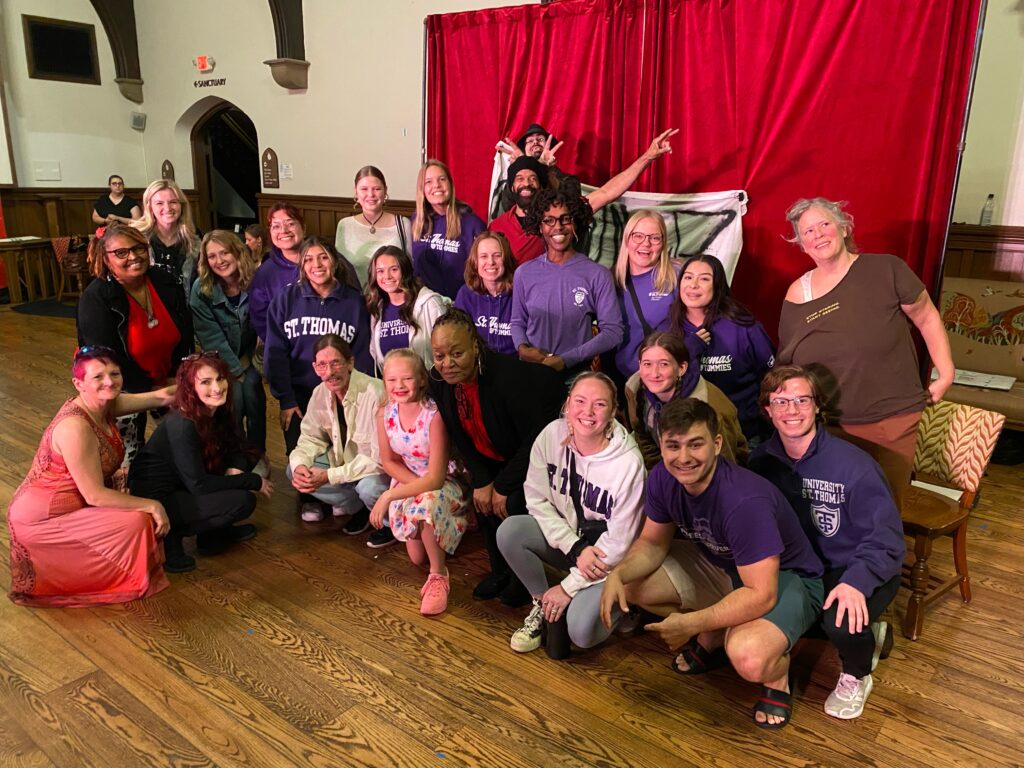Below is a list of all the ideas St. Thomas' CGI U students are working with:
Clean Green
Brianna Herdering and Lydia Lockwood
In 2018, Brianna Herdering and Lydia Lockwood committed to creating a more informed community about the sustainable efforts that already exist around them in the United States. The team will create a web-based app that will allow its consumers to gain access to environmentally friendly efforts that companies near them are already doing, along with the current discounts companies are having to complete this sustainable effort. The team will be partner with local businesses and will be rewarding consumers with incentives to remind them of the good they are doing for the environment. The group expects to increase the consumer awareness of the conservation efforts that are happening in their own communities.
Food Brings Us Together: A Sustainable Distribution Model
Madeleine Flisk
In 2018, Madeleine Flisk and partner organization BrightSide Produce committed to work with Chicago youth, university students and community activists to bring fresh produce to convenience stores in neighborhoods where residents face food insecurity. By partnering with local youth entrepreneurs who understand community needs and feelings, Flisk's team will coordinate deliveries to stores and provide free in-store services such as shelf maintenance, promotional materials and attractive displays. Flisk's team will make the operation financially sustainable by selling excess produce from delivery runs to university personnel using a community-supported agriculture (CSA)-type model. The team will strengthen relationships among community members, local stores and university students to help everyone work together to address community health needs.
From Mother to You
Fatoumata Jaiteh
Jaiteh is committed to improving access to prenatal and postnatal resources in the rural city of Farafenni, The Gambia, West Africa. The 501 (c)(3) nonprofit organization, From Mother to You, will provide maternal health care resources to Gambian women through a health program and a post-care package initiative consisting of baby clothes, maternal products, hygienic products and nourishment. The From Mother to You maternal program, facilitated by doctors and public health agents, will inform, support and empower mothers in The Gambia to be equipped and take charge of their own health with basic maternal information. To ensure the health of the mother and child, From Mother to You, in collaboration with the Farafenni General Hospital, will engage with the community to further provide quality service.
Initiative For a Better Africa
Victor Sikeley
By 2019, Victor and his nonprofit Initiative For a Better Africa will be supplying books, school supplies and textbooks to children at local schools in Monrovia, Liberia. The organization will also complete its first modern school building in Monrovia. The group runs book drives in the Minneapolis and St. Paul area, collecting books and educational resources to send to schools in Monrovia. Sikeley believes that supporting the educational efforts by providing updated resources will equip the young people in Liberia to start initiating change locally. The organization will be working with local NGOs in Liberia and nonprofits in the Twin Cities. Initiative For a Better Africa expects to have a local school equipped with a library.
Making Electricity Ubiquitous
Zachary Emond
In 2018, Zach Emond committed to research the status and projected path of energy storage technologies to better develop methods for sustainable usage. Following a trip to renewable energy sites in Germany and France, Edmond plans to speak in person with energy experts about the state and projection of energy storage, and to develop a basis of understanding of energy storage for initial application in St. Thomas’s state-of-the-art microgrid and, eventually, renewable energy systems around the world. This foundation of understanding will serve as a platform to extend renewable energy storage education to local students and curious minds.
Praxis: Lighting Africa
Robel Ponds
Robel Ponds founded Praxis, a company which commits to power neighborhood communities in Eritrea with the use of solar solutions by using local, recycled and non-recycled metals to create solar panel lighting. He is the sole owner of Praxis, and the organization was established to institute the implementation of solar panel lighting for communities living in the dark. Examples of communities that would benefit are schools and neighborhoods. Praxis plans to partner with Akon, a company with similar visions that offers solar panel solutions to countries in Africa and worldwide.
Rawdatul Muhibbeen
Ayana Shakir
Rawdatul Muhibbeen will establish relationships with local mosques, communities and schools to engage female Muslim youth and their parents. Rawdatul Muhibbeen will assist parents in cultivating their young girls into becoming healthy, positive and religiously sound members of their families, community and the society at large. A similar effort will be made to establish a companion program in private and charter schools. Participants will feel a sense of belonging, sisterhood and positive self-esteem through the fostering and adherence to a Muslim female identity, social responsibility and healthy peer interactions. A major focus is to also develop sustainable relationships with more community and private organizations. This type of change will break bilateral barriers and inspire a greater connectivity.
Solacqua
Marisa Smedsrud, Christina Ippoliti and Josh Faffler
In 2017, Christina Ippoliti, Marisa Smedsrud, and Josh Faffler committed to engineer a solar-powered water purification system that will enable impoverished villages in Rajasthan, India, to convert contaminated water into clean water sustainably and independently. The team will make a unit that contains their own invented, scientifically-tested technology. The team has established a partnership with Barefoot College that will teach women of impoverished villages how to assemble the systems and bring them home to their villages. The group expects to decrease waterborne disease and debilitating health conditions from harmful chemicals by 100 percent in the villages where it is implemented. In addition, the system is low-cost and will empower the user to be entrepreneurial and independent.







